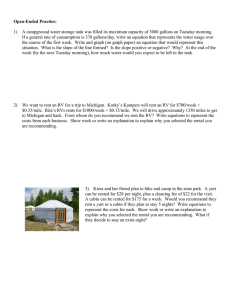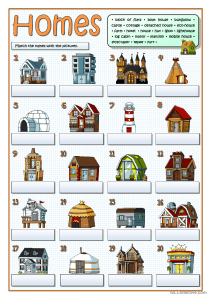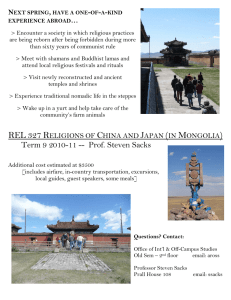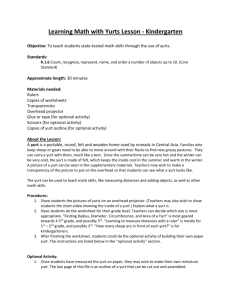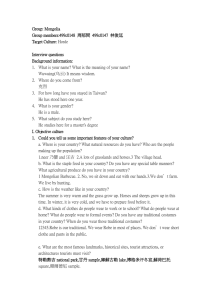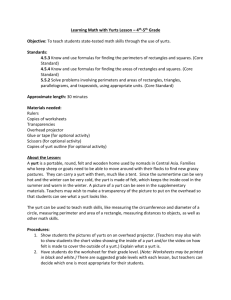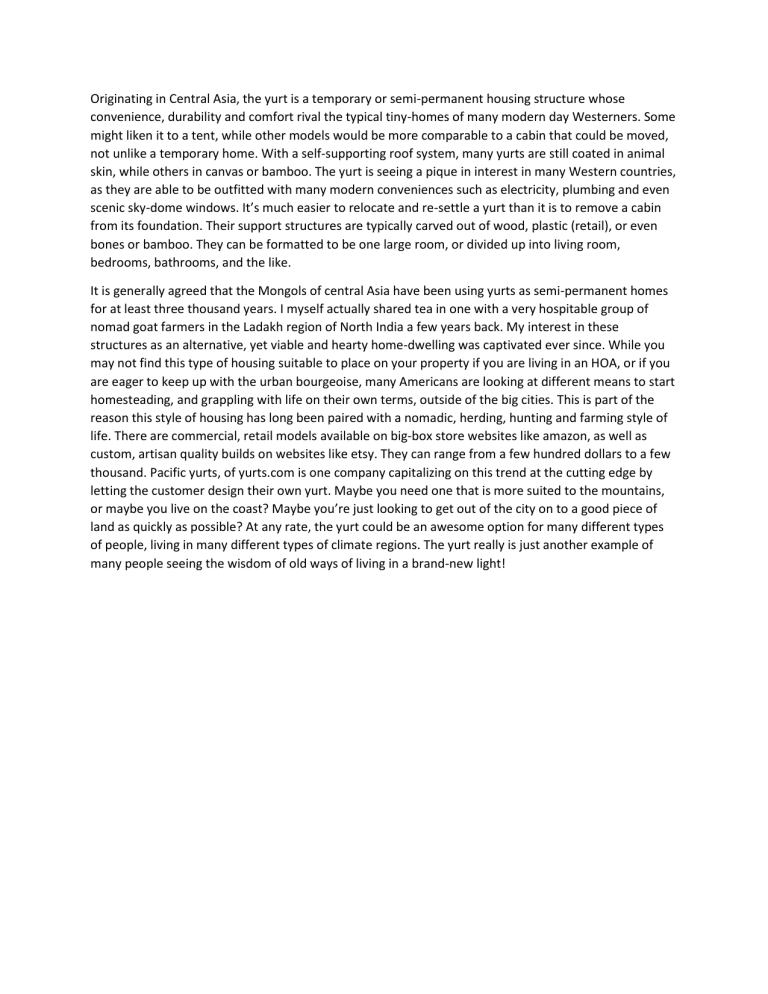
Originating in Central Asia, the yurt is a temporary or semi-permanent housing structure whose convenience, durability and comfort rival the typical tiny-homes of many modern day Westerners. Some might liken it to a tent, while other models would be more comparable to a cabin that could be moved, not unlike a temporary home. With a self-supporting roof system, many yurts are still coated in animal skin, while others in canvas or bamboo. The yurt is seeing a pique in interest in many Western countries, as they are able to be outfitted with many modern conveniences such as electricity, plumbing and even scenic sky-dome windows. It’s much easier to relocate and re-settle a yurt than it is to remove a cabin from its foundation. Their support structures are typically carved out of wood, plastic (retail), or even bones or bamboo. They can be formatted to be one large room, or divided up into living room, bedrooms, bathrooms, and the like. It is generally agreed that the Mongols of central Asia have been using yurts as semi-permanent homes for at least three thousand years. I myself actually shared tea in one with a very hospitable group of nomad goat farmers in the Ladakh region of North India a few years back. My interest in these structures as an alternative, yet viable and hearty home-dwelling was captivated ever since. While you may not find this type of housing suitable to place on your property if you are living in an HOA, or if you are eager to keep up with the urban bourgeoise, many Americans are looking at different means to start homesteading, and grappling with life on their own terms, outside of the big cities. This is part of the reason this style of housing has long been paired with a nomadic, herding, hunting and farming style of life. There are commercial, retail models available on big-box store websites like amazon, as well as custom, artisan quality builds on websites like etsy. They can range from a few hundred dollars to a few thousand. Pacific yurts, of yurts.com is one company capitalizing on this trend at the cutting edge by letting the customer design their own yurt. Maybe you need one that is more suited to the mountains, or maybe you live on the coast? Maybe you’re just looking to get out of the city on to a good piece of land as quickly as possible? At any rate, the yurt could be an awesome option for many different types of people, living in many different types of climate regions. The yurt really is just another example of many people seeing the wisdom of old ways of living in a brand-new light!
